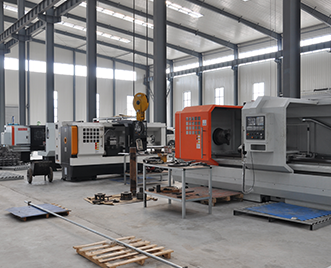Aug . 16, 2024 22:46 Back to list
High Efficiency 240 Volt Submersible Water Pump for Deep Well Applications
Understanding 240 Volt Submersible Water Pumps
When it comes to efficient and reliable water pumping solutions, 240 volt submersible water pumps are a popular choice for both residential and industrial applications. These pumps are designed to operate underwater, making them particularly effective for draining, irrigation, and transferring water from wells, ponds, or other subterranean sources. In this article, we will explore the key features, advantages, and applications of these powerful pumps.
What is a Submersible Water Pump?
A submersible water pump is a type of pump that is submerged in the fluid it is intended to pump. It is typically sealed to prevent water from entering the motor and electrical components, allowing it to operate safely underwater. Submersible pumps can handle various liquids, but they are primarily used for moving water for irrigation, dewatering, and sewage applications. The 240 volt rating refers to the electrical system voltage required to power the pump, which is common in many industrial and some residential settings.
Key Features
1. Power Efficiency Operating at 240 volts allows these pumps to handle larger loads while maintaining energy efficiency. This voltage level can provide sufficient power to move water at higher flow rates compared to standard 120 volt models.
2. Durability and Longevity Submersible pumps are designed to withstand harsh conditions. They often come with heavy-duty materials that resist corrosion and wear, ensuring a longer lifespan even in challenging environments.
3. Quiet Operation Because the pump is submerged, it tends to operate more quietly than surface-mounted pumps. This makes them ideal for residential areas where noise can be an issue.
4. Self-Priming Most submersible pumps are self-priming, meaning they do not require manual priming before operation. This feature saves time and ensures consistent performance.
Advantages of 240 Volt Submersible Pumps
1. Higher Capacity The higher voltage allows for more powerful pumps that can move larger volumes of water, making them suitable for applications that require significant water transfer, such as agricultural irrigation or commercial dewatering.
240 volt submersible water pump

3. Reduced Energy Consumption While the initial investment may be higher, the efficiency of 240 volt pumps can lead to significant savings on energy costs over time, especially for long-term usage.
4. Increased Depth Submersible pumps can be installed at greater depths, making them ideal for extracting water from deep wells or below ground level.
Applications of 240 Volt Submersible Water Pumps
The versatility of 240 volt submersible water pumps makes them suitable for various applications
- Residential Use Homeowners often use these pumps for basement drainage, lawn irrigation, or fountain installations.
- Agricultural Use Farmers utilize submersible pumps to irrigate fields, providing a reliable water source for crops.
- Construction Sites These pumps are essential for dewatering processes at construction sites, ensuring that the work area remains dry and safe.
- Industrial Use In industrial settings, submersible pumps are used for transferring wastewater, ensuring efficient fluid management.
Conclusion
In summary, 240 volt submersible water pumps offer a robust and efficient solution for a wide range of water pumping needs. Their ability to function effectively at depth, along with their durability and energy efficiency, makes them an excellent investment for both homeowners and businesses alike. Whether you're looking to irrigate your garden, manage floodwaters, or support industrial operations, a 240 volt submersible pump could be the right choice to meet your water movement needs. As technology advances, these pumps are likely to become even more efficient, further enhancing their appeal in various applications.
-
Submersible Water Pump: The Efficient 'Power Pioneer' of the Underwater World
NewsJul.01,2025
-
Submersible Pond Pump: The Hidden Guardian of Water Landscape Ecology
NewsJul.01,2025
-
Stainless Well Pump: A Reliable and Durable Pumping Main Force
NewsJul.01,2025
-
Stainless Steel Submersible Pump: An Efficient and Versatile Tool for Underwater Operations
NewsJul.01,2025
-
Deep Well Submersible Pump: An Efficient 'Sucker' of Groundwater Sources
NewsJul.01,2025
-
Deep Water Well Pump: An Efficient 'Sucker' of Groundwater Sources
NewsJul.01,2025
-
 Submersible Water Pump: The Efficient 'Power Pioneer' of the Underwater WorldIn the field of hydraulic equipment, the Submersible Water Pump has become the core equipment for underwater operations and water resource transportation due to its unique design and excellent performance.Detail
Submersible Water Pump: The Efficient 'Power Pioneer' of the Underwater WorldIn the field of hydraulic equipment, the Submersible Water Pump has become the core equipment for underwater operations and water resource transportation due to its unique design and excellent performance.Detail -
 Submersible Pond Pump: The Hidden Guardian of Water Landscape EcologyIn courtyard landscapes, ecological ponds, and even small-scale water conservancy projects, there is a silent yet indispensable equipment - the Submersible Pond Pump.Detail
Submersible Pond Pump: The Hidden Guardian of Water Landscape EcologyIn courtyard landscapes, ecological ponds, and even small-scale water conservancy projects, there is a silent yet indispensable equipment - the Submersible Pond Pump.Detail -
 Stainless Well Pump: A Reliable and Durable Pumping Main ForceIn the field of water resource transportation, Stainless Well Pump has become the core equipment for various pumping scenarios with its excellent performance and reliable quality.Detail
Stainless Well Pump: A Reliable and Durable Pumping Main ForceIn the field of water resource transportation, Stainless Well Pump has become the core equipment for various pumping scenarios with its excellent performance and reliable quality.Detail
